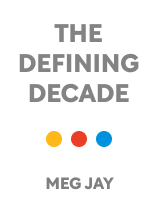

This article is an excerpt from the Shortform book guide to "The Defining Decade" by Meg Jay. Shortform has the world's best summaries and analyses of books you should be reading.
Like this article? Sign up for a free trial here .
Why is planning for your future so important? How can you make sure your life plans stay on track?
When you’re planning for your future, it’s important to keep your own timeline in mind. Letting time slip away is a mistake, and you’ll need to start your plan early.
Read more about planning for your future in your twenties.
Planning for Your Future: Keep Track of the Time
The way time passes changes once we leave school. In school, time is clearly delineated into semester-sized pieces with well-defined projects and deadlines. In the real world, there’s just one big chunk of time with large, abstract projects like “start a family” or “have a career,” but no clear deadlines. It can be disorienting, and the lack of regular deadlines can lead people to live day-by-day and lose track of time. Day-by-day can easily turn into year-by-year.
“Present bias” also encourages twenty-somethings to put off planning for the future. People are inclined to favor the rewards of today over the promises of tomorrow. The present feels real, the future feels abstract.
Further, twenty-somethings are often actively encouraged to think only of the present with cultural messages like “You’re only young once,” or “You have all the time in the world.”
But delaying your future-planning carries great risks. The attitude that “life begins at thirty” might lead you to postpone getting started on major milestones, and might then lead to a very stressful thirties decade in which you need to do everything at once: go to school while planning a marriage, or graduate and enter the workforce while pregnant.
Make a Timeline
Planning for your future can be easier when you make a timeline. Get started on your future-planning by making an actual, physical timeline.
- Draw it out, or create it on your computer.
- Begin with the end. Think of a goal you want and decide where you want that to happen on your timeline. Do you want to have your first child by 35? Is it important to you that you’re not working at a coffee shop at age 30?
- Work backwards from there. If you want to start a family in your early thirties, what does that mean for your plans to go to law school? Will you be comfortable doing both at the same time? When you write things down on paper, they become more real to you, and you’ll be able to better judge how these events might overlap and how much time you’ll need to allow for each. You’ll then be more in control of purposefully spacing them out.

———End of Preview———
Like what you just read? Read the rest of the world's best book summary and analysis of Meg Jay's "The Defining Decade" at Shortform .
Here's what you'll find in our full The Defining Decade summary :
- Why the twenties are your most important decade
- How you were fooled into thinking it was an extended period of youth and freedom
- Why you should use this decade to find personal and professional success






